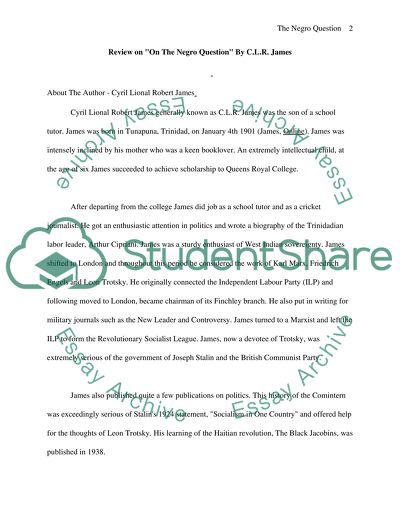Cite this document
(“Review on On The Negro Question By C.L.R. James Essay”, n.d.)
Retrieved from https://studentshare.org/literature/1521009-review-on-on-the-negro-question-by-clr-james
Retrieved from https://studentshare.org/literature/1521009-review-on-on-the-negro-question-by-clr-james
(Review on On The Negro Question By C.L.R. James Essay)
https://studentshare.org/literature/1521009-review-on-on-the-negro-question-by-clr-james.
https://studentshare.org/literature/1521009-review-on-on-the-negro-question-by-clr-james.
“Review on On The Negro Question By C.L.R. James Essay”, n.d. https://studentshare.org/literature/1521009-review-on-on-the-negro-question-by-clr-james.


